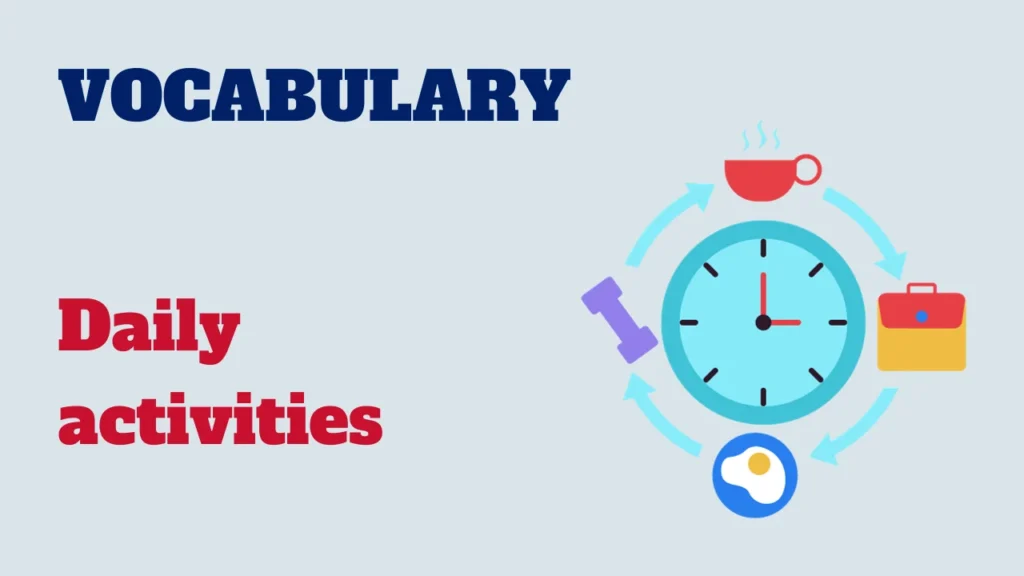Describing daily activities is a fundamental part of communication.

Let’s explore vocabulary related to common daily routines and actions to help you express your daily life more effectively.
Daily activities vocabulary
- Wake up: To rouse from sleep.
- Get out of bed: To leave the bed and start the day.
- Brush teeth: To clean teeth using a toothbrush and toothpaste.
- Take a shower: To wash the body using water and soap.
- Get dressed: To put on clothes.
- Have breakfast: To eat the first meal of the day.
- Go to work/school: To travel to the workplace or educational institution.
- Arrive at work/school: To reach the workplace or school.
- Start work/study: To begin the day’s tasks or lessons.
- Have lunch: To eat the midday meal.
- Finish work/school: To complete the day’s tasks or classes.
- Return home: To go back to one’s place of residence.
- Exercise: To engage in physical activity for health and fitness.
- Cook dinner: To prepare the evening meal.
- Eat dinner: To consume the evening meal.
- Watch TV: To view television programs for entertainment.
- Read a book: To peruse written material for enjoyment or learning.
- Go to bed: To get into bed to sleep.
- Set the alarm clock: To program a device to wake you up at a specific time.
- Check emails: To look at and respond to emails in electronic communication.
A paragraph about daily activities, routines:
Every morning, I wake up to the sound of my alarm clock and immediately brush my teeth to freshen up. Then, I take a quick shower and get dressed for the day ahead. I always make time for a hearty breakfast, usually eggs and toast, to fuel myself. After that, I head off to work, where I spend most of my day. During lunchtime, I have a break to enjoy a sandwich or salad. Once work is done, I return home, eager to relax. I cook dinner, often something simple like pasta or grilled chicken. Sometimes, I watch TV for a while before sitting down to eat dinner. After dinner, I like to unwind by reading a book for a bit. Finally, I head to bed, ready to rest and start the routine all over again the next day.
Congratulations on expanding your vocabulary related to daily activities! These words will help you express your routines and habits more precisely. Practice using them in context to reinforce your understanding and language skills. Stay tuned for more vocabulary lessons on our language-learning journey!



